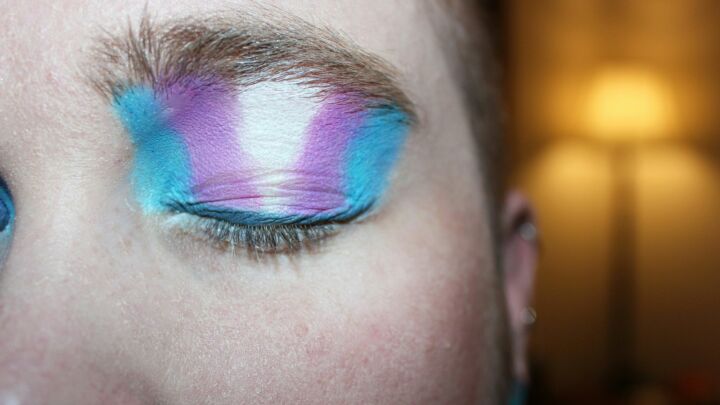Homeopathy: diluting the evidence
The bold claims of a new study don't hold water.

‘New study is boost to homeopathy’ trumpets the BBC News headline on 21 November (1). According to the pull quote from Dr David Spence, ‘These results clearly demonstrate the value of homeopathy in the NHS’.
The news release from the British Homeopathic Association is even more upbeat, claiming that ‘Homeopathy improves health of 70 per cent of patients in hospital study’ and quoting Dr Kim Jobst as saying that ‘These are response rates with which any orthodox NHS medical health provider or pharmaceutical company would be justly pleased’ (2).
Homeopathy, according to the British Homeopathic Association’s website, ‘ works on the principle that “like treats like”. An illness is treated with a medicine which could produce similar symptoms in a healthy person. The active ingredients are given in highly diluted form…. Prescribing is based on all aspects of a patient’s condition. The patient’s personality and lifestyle are important’ (3). Critics say that the process of dilution with water means, in the British Homeopathic Association’s own words, that ‘it is highly unlikely that any single molecules of the original substance remain’ in a given dose. The mechanism by which homeopathy is supposed to improve a patient’s health remains mysterious.
Dr Kim Jobst is editor-in-chief of the Journal of Alternative and Complementary Medicine, which published the new study, a long-term observational study of over 6000 patients attending Bristol Homeopathic Hospital over six years (4). At each visit following the initial consultation, they were asked if they felt worse (or slightly worse, or much worse), better (or slightly or much better) or felt there had been no change. Only 23 per cent said there had been no change, with a total of 3.1 per cent feeling worse. Just over 50 per cent reported feeling ‘better’ or ‘much better’.
But is this really conclusive proof that homeopathic treatment works? Every person in the trial had agreed to be referred to the homeopathic hospital, so all of them started with some belief that homeopathy could help them. There is no indication of how patients who had stopped attending felt about the treatment – and, let’s face it, if you felt a treatment wasn’t working, would you go back and say so, or would you just stop going? Especially in Bristol, where admitting you’d hurt a homeopath’s feelings is the social equivalent of wearing fur at a vegetarian dinner.
More fundamentally, the study had no control group – that is, there is nothing against which to measure the results of the homeopathic treatment. It’s as if you had a theory that feeding children nothing but cheese made them grow taller, so you fed all your children cheese, measured them after a year and said ‘There – all of them have grown taller – proof that cheese works!’
Compare this to the standard of testing that we would expect for a new drug. A pharmaceutical company that wanted to put a new treatment on the market would first have to prove, not only that it was reasonably safe and that they were capable of manufacturing it to consistent levels of quality, but also that it worked. Tests would have to show, Richard Ley of the Association of the British Pharmaceutical Industry (ABPI) (5) tells me, that ‘there is a scientifically measurable improvement in the patient’s condition. A double-blind trial is very frequent, when neither the subjects nor the researchers know which is the placebo (6), so they cannot be influenced in their reading of the condition by their belief in the treatment’.
Contrary to Dr Jobst’s assertion, a pharmaceutical company who asked for a licence to market their drug to human patients would get short shrift if their only proof was a group of patients who self-reported ‘feeling better’, with no control group and no objective measures of effectiveness.
Homeopathic treatments have been subjected to such double-blind trials. One such, reported in the Journal of the Royal Society of Medicine (7), tested the effects of homeopathic arnica in reducing pain, bruising and swelling following wrist operations. Unlike the Bristol Hospital study, it did not rely solely on patients’ subjective reports. ‘Primary outcome measures were pain (short form McGill Pain Questionnaire) and bruising (colour separation analysis) at four days after surgery. Secondary outcome measures were swelling (wrist circumference) and use of analgesic medication (patient diary).’ In this study, no differences were reported between patients taking two different homeopathic concentrations of arnica or the placebo.
Dr Jobst’s editorial (8) refers, somewhat triumphantly, to a study by the University of Berne in Switzerland, published in the Lancet in August 2005. That study, a meta-study comparing previous clinical trials of both homeopathic and conventional medicine, concluded that ‘biases are present in placebo-controlled trials of both homoeopathy and conventional medicine. When account was taken for these biases in the analysis, there was weak evidence for a specific effect of homoeopathic remedies, but strong evidence for specific effects of conventional interventions. This finding is compatible with the notion that the clinical effects of homoeopathy are placebo effects’.
In fact the study found that, the more rigorous the trial, the weaker the evidence that homeopathic treatment works. This backs up earlier meta-studies that reached broadly the same conclusions. A 2002 study by York University concluded that ‘there are currently insufficient data either to recommend homeopathy as a treatment for any specific condition, or to warrant significant changes in the provision of homeopathy’, largely because of the ‘methodological inadequacies of the existing evidence base’ (9).
Which begs the question – if homeopaths want to be treated as serious medical practitioners, why have they not submitted themselves to the same rigorous testing as conventional medicine? Instead of asking patients to say (to the homeopath treating them) whether they feel better, why not conduct more randomised, double-blind, controlled clinical trials that can provide proof that homeopathy works better than drinking water?
This is where homeopathy’s claim for equal status suddenly turns into a claim for different status. ‘One of the important principles of homoeopathic prescribing is Individualisation- the response of an individual to any stimulus is unique and different from another who is exposed to the same stimulus’, says Dr. Vijay H Vaishnav in a reply to the arnica study quoted above (10). Meaning that it’s not valid to compare one patient with another. ‘It has been established beyond doubt and accepted by many researchers, that the placebo-controlled randomised controlled trial is not a fitting research tool with which to test homeopathy’, said a spokeswoman for the Society of Homeopaths in response to the Lancet meta-study (11).
A guest editorial by Iris R Bell in the JACM claims that the Lancet meta-trial is invalid because of a series of things that are ‘not homeopathy’, including choosing a single remedy ‘on the basis of an allopathic [conventional] diagnosis’ (12), and choosing an incorrect remedy (does this never happen in clinical trials of conventional medicine?).
‘The fundamental principles of homeopathy are that the treatment addresses the patient’s entire pattern of problems at once in a patient-specific but not disease-specific manner’, says Bell. This clearly puts homeopathy entirely outside the range of normal clinical trials. How can the treatment of one person be compared against the treatment of another person, if each one must be treated as a unique individual?
Which is surely part of the appeal of homeopathy to people suffering from chronic conditions, as most of those attending the Bristol Homeopathic Hospital are, who feel their personhood diminished by the seemingly intractable susceptibility of their body to illness. Small wonder that so many of them reported feeling better.
But does this prove that homeopathy is a good use of NHS funds? Might these individuals not feel their personhood restored equally by taking an active role in life, transcending the limitations of their physical condition, even temporarily, by exercising the parts that make us more than our animal bodies? Writing a book, perhaps? Studying history or mathematics, listening to music?
Some claim that it doesn’t matter why homeopathy appears to work – the important thing is that the subjects felt better. What’s the harm, even if it is just the placebo effect at work? The harm is that sick people are being misled about the effectiveness of treatments that would not stand up to the tests we impose on conventional medicine. At worst, this could mean seriously ill patients setting aside potentially life-saving treatments for ones no more useful than plain water.
Of the 6544 patients in the Bristol study, seven per cent (over 450) were cancer patients. According to the published study, over 450 people were not receiving medical treatment that has been demonstrated to reduce the size of tumours, or to inhibit their spread, or in any way to counteract the way that cancer attacks the body. In the case of life-threatening illnesses, ‘feeling better’ is not enough; cancer is not about how you feel. Ten percent of the cancer patients in the study reported feeling worse. It is to be hoped that they were not suffering an avoidable decline in their condition.
But even at best, homeopathy means abandoning the pursuit of real control over illness, through the rigours of scientific testing, in favour of the illusion of control. If we abandon the enormous gains that medical science has brought, and continues to bring, through objective testing, we really do become the prisoners of our bodies’ frailty. It’s by the exercise of reason that we become more than bundles of symptoms – not by submitting ourselves to an untested and apparently untestable system of treatment based on the principles of magic.
Timandra Harkness is a science writer and broadcaster.
(1) New study is boost to homeopathy, BBC News, 21 November 2005
(2) Homeopathy improves health of 70% of patients in hospital study, British Homeopathic Association
(3) Overview, British Homeopathic Association
(4) Homeopathic treatment for chronic disease, in The Journal of Alternative and Complementary Medicine
(5) Association of the British Pharmaceutical Industry
(6) A placebo is a dummy treatment. The well-documented placebo effect shows that patients treated with a placebo (dummy) treatment do better than those who receive no treatment at all
(7) Homeopathic arnica for prevention of pain and bruising: randomized placebo-controlled trial in hand surgery, JR Soc Med 2003;96:60-65, C Stevinson et al
(8) See article in Journal of Alternative and Complementary Medicine
(9) Effective Health Care
(10) Dr. Vijay H. Vaishnav, Letter to BMJ 18 July 2003
(11) Homeopathy’s benefit questioned, BBC News, 26 August 2005
(12) See article in the Journal of Alternative and Complementary Medicine
To enquire about republishing spiked’s content, a right to reply or to request a correction, please contact the managing editor, Viv Regan.








Comments
Want to join the conversation?
Only spiked supporters and patrons, who donate regularly to us, can comment on our articles.